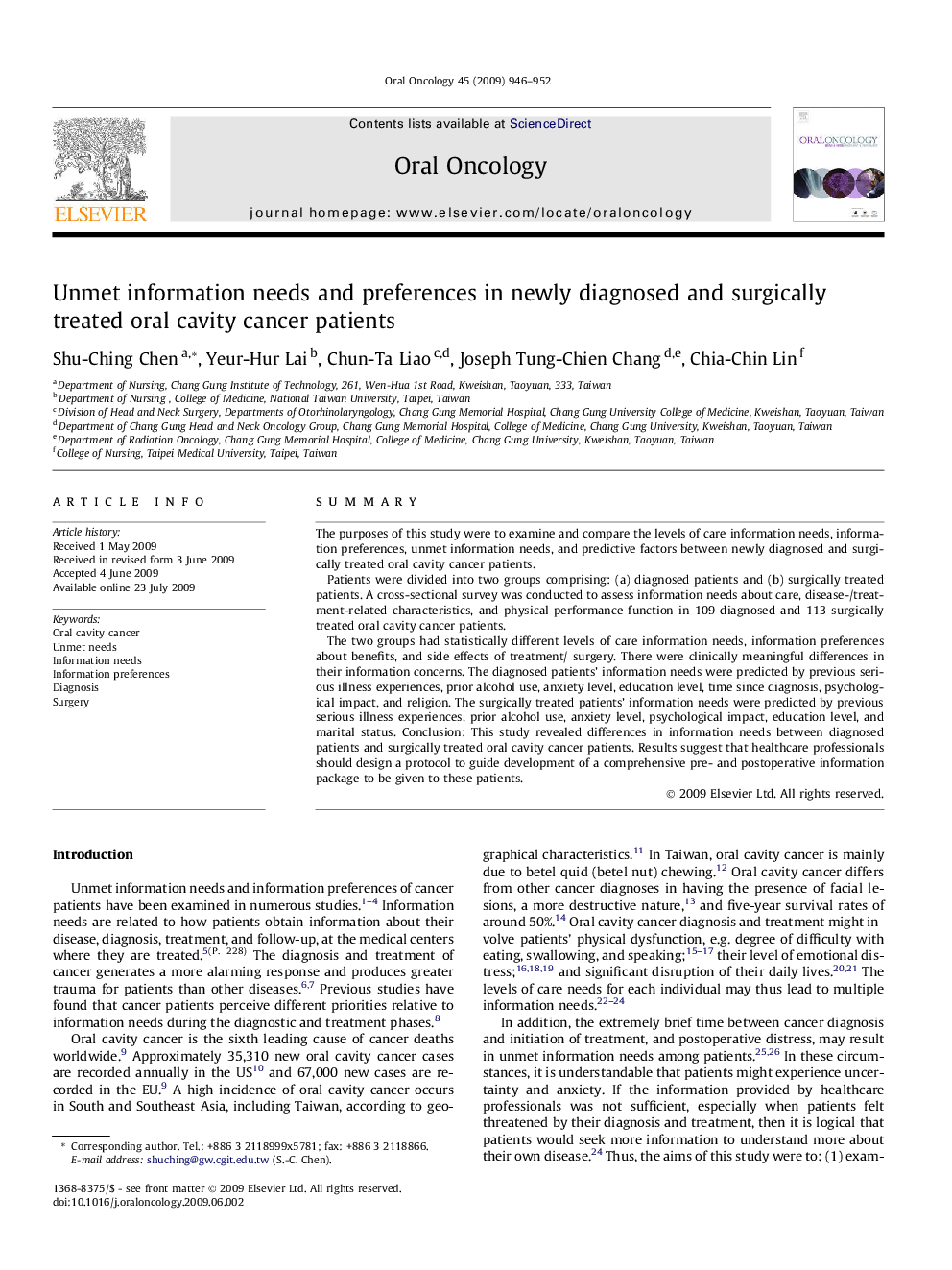| Article ID | Journal | Published Year | Pages | File Type |
|---|---|---|---|---|
| 3164795 | Oral Oncology | 2009 | 7 Pages |
SummaryThe purposes of this study were to examine and compare the levels of care information needs, information preferences, unmet information needs, and predictive factors between newly diagnosed and surgically treated oral cavity cancer patients.Patients were divided into two groups comprising: (a) diagnosed patients and (b) surgically treated patients. A cross-sectional survey was conducted to assess information needs about care, disease-/treatment-related characteristics, and physical performance function in 109 diagnosed and 113 surgically treated oral cavity cancer patients.The two groups had statistically different levels of care information needs, information preferences about benefits, and side effects of treatment/ surgery. There were clinically meaningful differences in their information concerns. The diagnosed patients’ information needs were predicted by previous serious illness experiences, prior alcohol use, anxiety level, education level, time since diagnosis, psychological impact, and religion. The surgically treated patients’ information needs were predicted by previous serious illness experiences, prior alcohol use, anxiety level, psychological impact, education level, and marital status. Conclusion: This study revealed differences in information needs between diagnosed patients and surgically treated oral cavity cancer patients. Results suggest that healthcare professionals should design a protocol to guide development of a comprehensive pre- and postoperative information package to be given to these patients.
